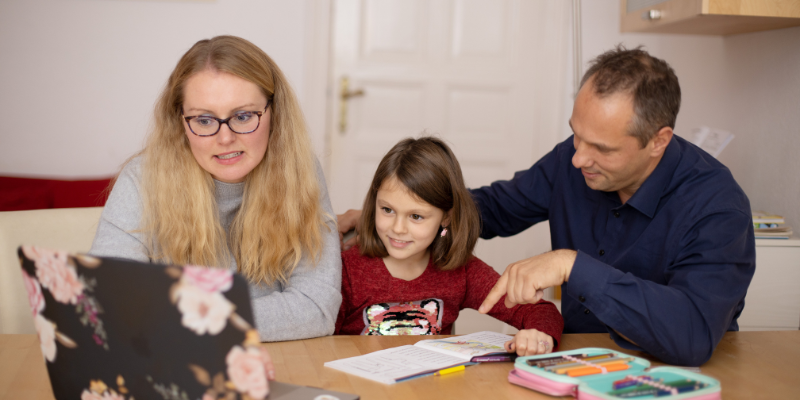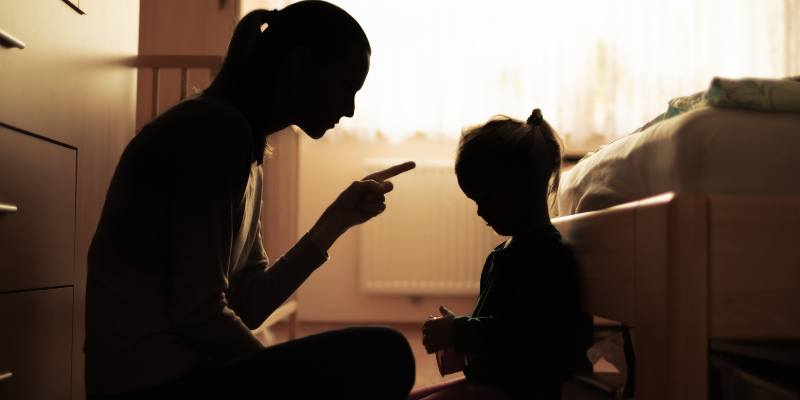As a guardian, one of your key responsibilities is guiding your child's behaviour. This requires patience and time. Developing balanced, effective discipline strategies will help your child grow productively. Discipline is about sharing knowledge and teaching skills but is often mistakenly linked to control and punishment. An ongoing debate exists about how parents can teach good manners without resorting to harsh methods, such as physical, emotional, or verbal punishment. Parents should set clear limits and help their children develop self-control to achieve this.

Discipline is a solution-focused method requiring self-examination from parents and children. On the other hand, punishment means imposing hardship on children for their past behaviour with the intention that it will change.
Using disciplinary methods encourages critical thinking and facilitates children's learning of new behaviours that will change negative habits.
Punishment triggers feelings of fear of consequences. This method of teaching the children will nurture the minds of children with anxiety and fear. And this fear will affect their confidence and personality in the future.

The American Academy of Pediatrics suggests practical approaches that successfully educate children to regulate their actions, protect their well-being, and promote healthy development. These include:
Moral development and education are necessary, including pointing out the wrong with gentle guidance and behaviour. Demonstrate positive behaviour to your children that you would like to see in them.
Set clear guidelines and rules your children can obey. Explain these rules based on their developmental stage so that they will understand properly.

Gently but authoritatively describe the repercussions if they misbehave. For example, if they do not clean their room, you will stow away their toys for the rest of the day.
Allow your child to share their ideas before assisting them to resolve issues. For example, if your child feels envious of someone, communicate with your child about this matter instead of imposing punishment alone.
The most effective tool for efficient discipline is giving your child attention. Parents' attention encourages children to behave well.
If your child is showing good behaviour and seeking your attention, give them attention. If your child is not doing something hazardous, ignore their deviant behaviour as natural outcomes will ideally teach them. For example, if your child continuously wastes their snacks, they will not have any snacks to eat at a particular time. On the other hand, if your child breaks the toys, they will not have any more toys to play with. So they will automatically understand that they should not waste things.
Continuously develop your child's potential to deal with problems and difficult situations. Prepare your child for how they should behave during difficult situations.

Set rules and boundaries during your children's formative years. Discipline is attainable with team effort. Develop an emotional relationship with your children and set rules and regulations for them and yourself. Parents and children can work together by setting rules.
1. Please encourage your children to take accountability for their actions
2. Help your children to develop self-modulation skills in them
3. Develop a sense of responsibility and emotional balance in your children
4. Always have an effective communication with your children
Keep in mind that punishment can never teach children how to behave well. If a child is physically punished, it will never be a reason to learn from their mistakes. On the other hand, they will be confused, ambivalent, and vague about why it is okay for you to give them physical punishment.
Moreover, punishment also unintentionally instils that your child cannot control their actions and has limited self-awareness. The only thing that your child will learn is that misbehaviour has severe and devastating consequences. Punishment eliminates the sense of responsibility, and thus, you will fail to teach good behaviour to your children.
If you are furious or feel out of control, step back. Take a deep breath, calm down, or call a friend to relax. The moment when you feel better, go back and hug your child. Physical punishment can never be an option to teach your child something.
If you feel that you cannot handle the situation, do not worry. If you get out of control, go to your child and apologize. Always learn from mistakes, and try not to repeat them. Promise your child not to repeat the situation. It will motivate your child not to do something terrible again.
In the end, building trust and mutual respect between parents and children is compulsory. Always create a supportive and positive environment between you and your child. Your child should be confident and claim accountability for their deeds. Your child should be comfortable sharing the problems and exciting experiences facing in life.